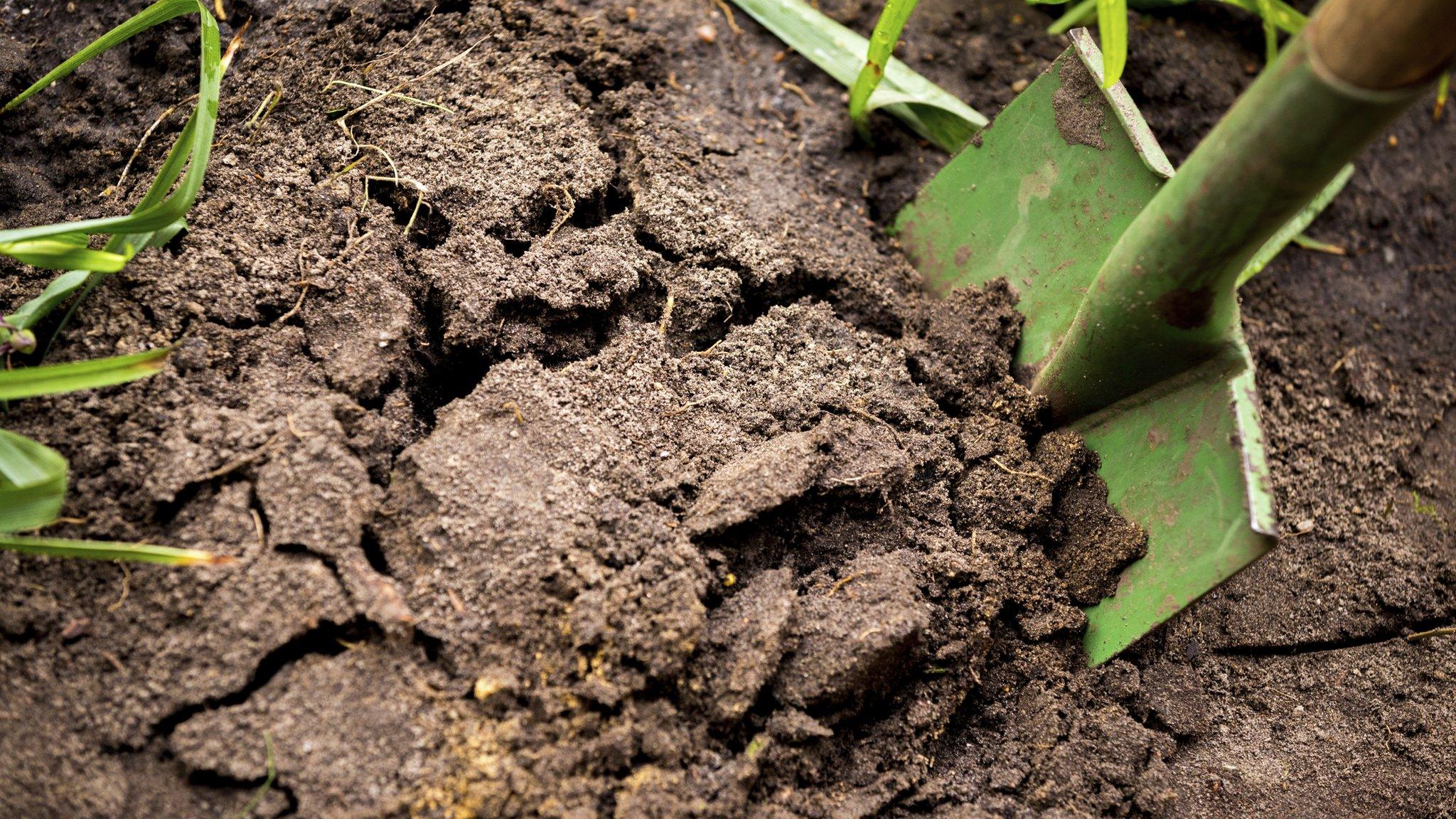Russian free land: A brilliant bureaucratic nightmare?
- Published
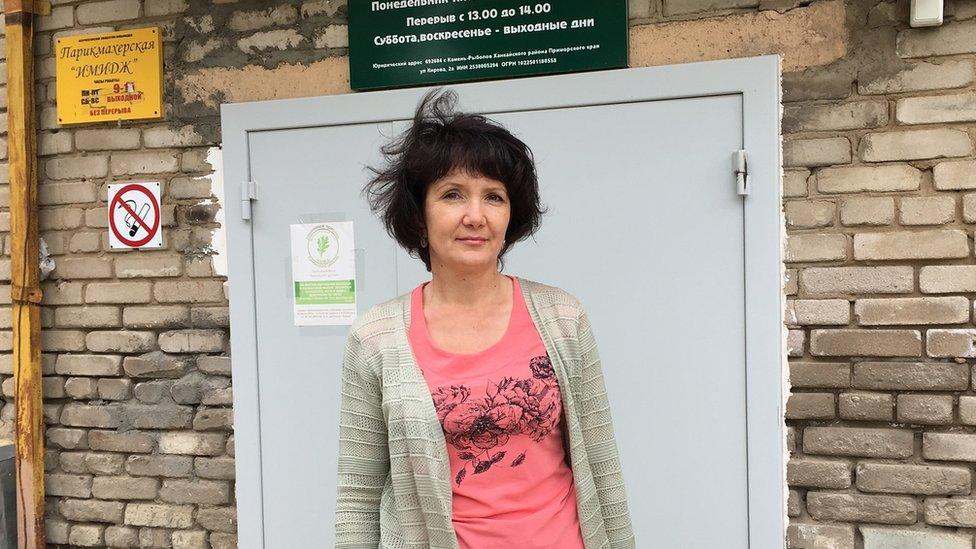
Olga Smirogina says people in her hometown are not very rich but are happy
Olga Smirogina has lived in Kamen-Rybolov her whole life. It's a place so quiet, people living there insist on calling it a village, even though it's a small town of 22,000 people.
"It's not a very big town," says Olga. "But it has its history and the people that live here are very pleasant."
Deep in the countryside in the far-flung east of Russia, it sits on the edge of the vast Lake Khanka, 200km north of Vladivostok.
"Agriculture is the mainstay of our people," explains Olga. "They work in the fields. They are not very rich of course but it's our life."
But that life in Kamen-Rybolov is in danger. There are fewer jobs available in agriculture and the village is shrinking. And it's not just Kamen-Rybolov that's getting smaller. The population of the whole of the Russian Far East is decreasing.
In an area that's a third of the entire Russian land mass, only just over 6 million people live there - about 4% of the population.
To tackle this under-population, the government in Moscow has created a new law, entitling every Russian citizen to a hectare of land in the Far East for free.
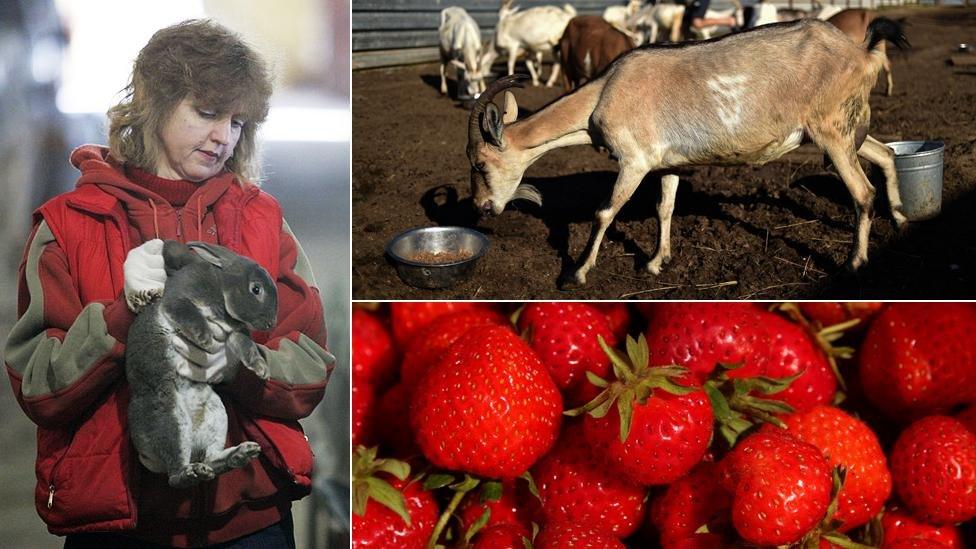
Would-be rabbit, goat and strawberry farmers are encouraged to set up in Russia's Far East
The idea is to develop the vast swathes of under-utilised land, for farming, tourism or other business. The official government website, external promoting the project contains examples of business plans for would-be free hectare owners.
It suggests growing strawberries for an initial investment of 900,000 roubles (£10,500; $13,850), with a payback period of 12 months. Other examples include cattle, goat or rabbit farming, or setting up a commercial hunting business.
Kamen-Rybolov is one of the areas where the project has been piloted. For three months people from the nine Far Eastern regions have been able to apply for unused government land, by filling out a form on the internet.
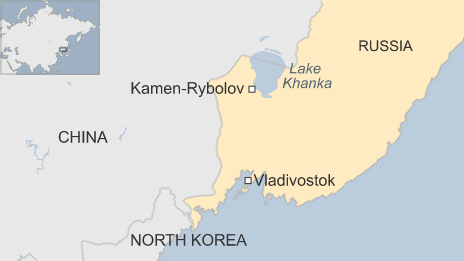
For Olga, it's an opportunity to breathe new life into her beloved town
"Many people in big towns want to live in a calm place, in a quiet place, and we are ready to give such an opportunity to them."
A quick glimpse at some of this land reveals why people might decide to take up the offer.
Vladimir Mishchenko, head of the district administration, shows off one of the prime spots of land that's been snapped up for free.
It's a beautiful wooded area by the shore of Lake Khanka, with a glade that opens out to a small sandy beach.
The person who got it for free is now exploring opportunities to develop tourism there by making a campsite and seeing if there's any money in it.
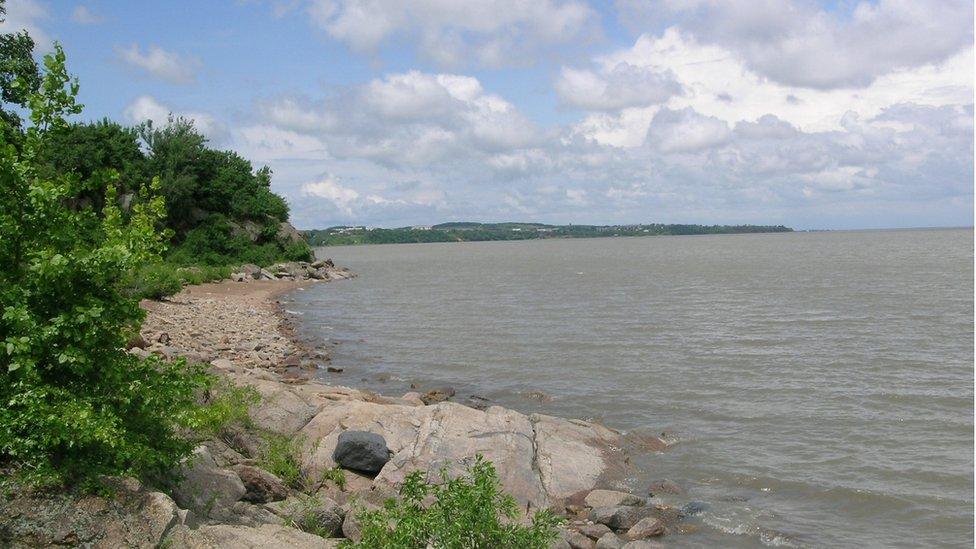
Prime location: land on the shores of Lake Khanka has already been snapped up
But the government has put checks in place to make sure the scheme isn't abused by people to make a profit selling the land, or for money laundering.
"We can't say that this land is actually owned by somebody. It's better to say 'rented'," explains Mr Mishchenko. "During the first five years you can neither sell, nor give it to somebody else."

Find out more
Listen to Marie's report for Business Matters here

The person who got this particular spot of land is certainly very lucky, but after the three months in action, the scheme isn't without its teething problems.
For instance, there is no way of knowing online if anybody else has asked for the land you want. Mr Mishchenko describes how hundreds of people have been applying for the same prime plots in Khankaiski District, and it's turning out to be a bureaucratic nightmare for his administration who has to sort it all out.
There have been 880 applications, but of those, only eight people have seen their dreams for free land come to fruition.
Thirty more applications are now in process, but it is clear there's a long way to go.
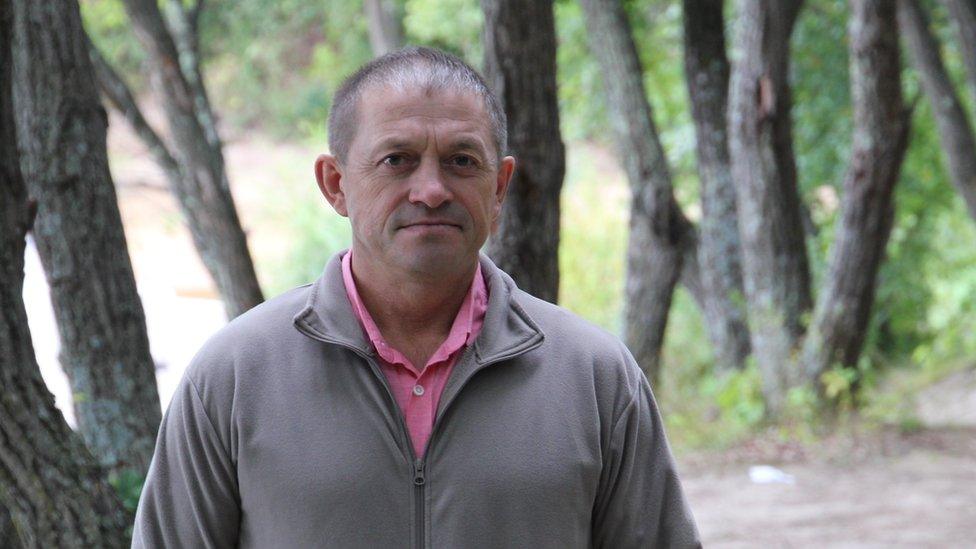
Vladimir Mishchenko says the scheme is a good idea but proving a bureacratic headache
So is Vladimir Mishchenko pleased that his area was one of the chosen places to pilot this ambitious project?
He shakes his head and sighs. "It's not just that it's too much work," he says, "but we still haven't seen results."
He goes on: "The idea is really good, it's kind of brilliant, but all these things require a lot of time and a lot of human resources to co-ordinate all this work. If we want to talk about any kind of economic effect we should wait at least a year to see the results."
Currently the free hectare law is only open to those already living in Russia's Far Eastern regions. But from February next year it will roll out so that everyone across the whole country will be able to have a stake in the Russian Far East.
Of course the success of the scheme depends on whether Russians even want a free hectare out in their country's isolated hinterland in the first place.
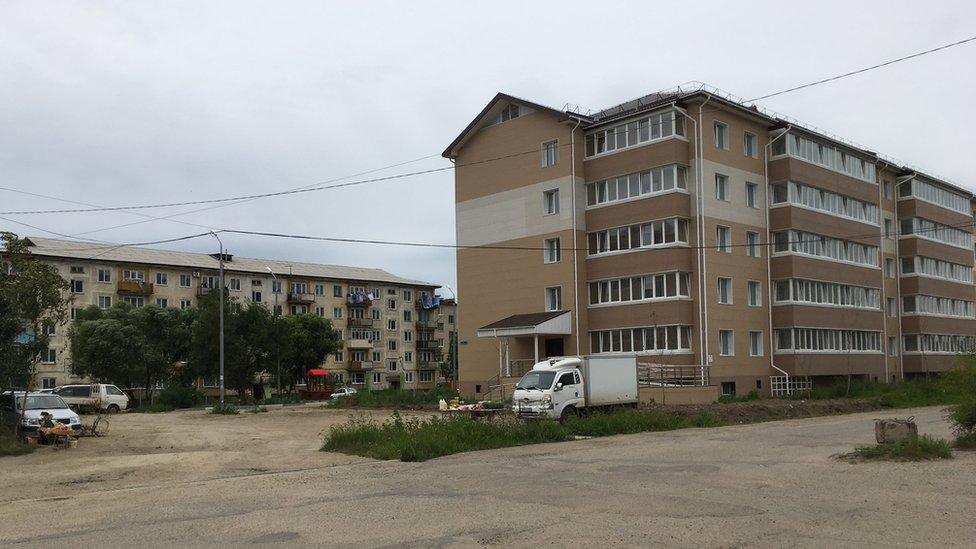
Will places like Kamen-Rybolov attract Russians from across the country?
Back on the mean streets of Vladivostok the resounding view was that the idea was fine, but not something people wanted to take up themselves.
"I don't think about it seriously," says one man. "But I think it's a good idea for other guys who maybe really want it and who maybe come from villages."
Twenty-seven-year-old Anton Nekhoroshkov, however, is someone who's gone for the offer.
The land he's chosen, clubbing together with three friends, is 300km away from his home in Vladivostok, and close to a federal highway.
On their combined four hectares, he and his friends plan to start a shop, getting business from trucks travelling between Russia and China.
And he also knows the system. He works for a private organisation called the Far Eastern Hectare Social Movement, a website that drums up awareness for the project, and provides support for applicants.
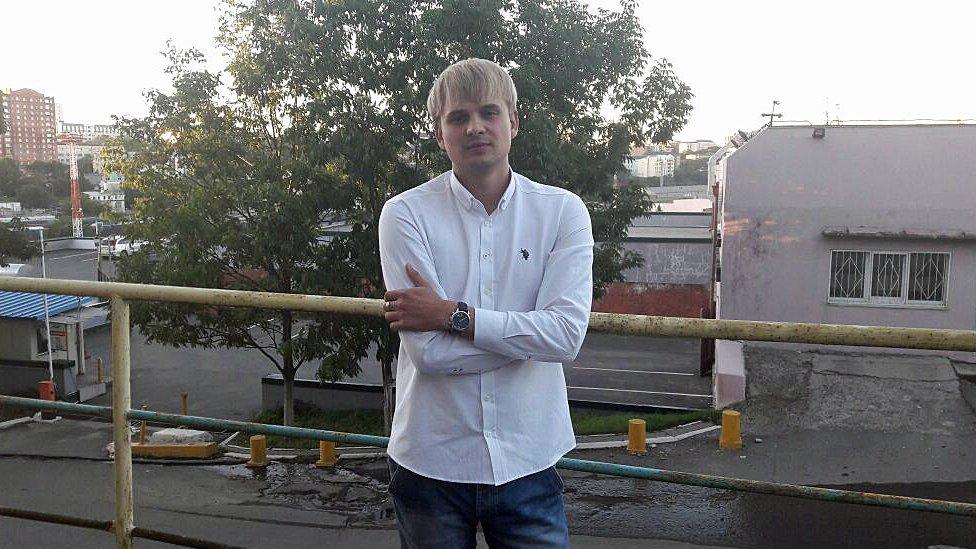
Anton Nekhoroshkov plans to start a shop on his free land
"We decided to get this land when we heard about the law because it really allows people to do whatever kind of business they want," he says.
"Of course there will be people who refuse to do it but there is strong government support, so those who believe in their powers will use this project and will move to the Far East."
So far, in places like Kamen-Rybolov the promise of free land has been more of a headache than a boost for the local administration. And the dusty streets of this isolated outpost may hold little appeal for Russia's city slickers.
But Olga Smirogina at least can point to one convert to country life in the Russian Far East.
"My husband is from Vladivostok but he prefers only Kamen-Rybolov. He didn't want to leave his Vladivostok but when he came here and he saw Lake Khanka he said, 'I stay here. I like it!'"
You can hear more on this story on Business Matters.
- Published3 May 2016
